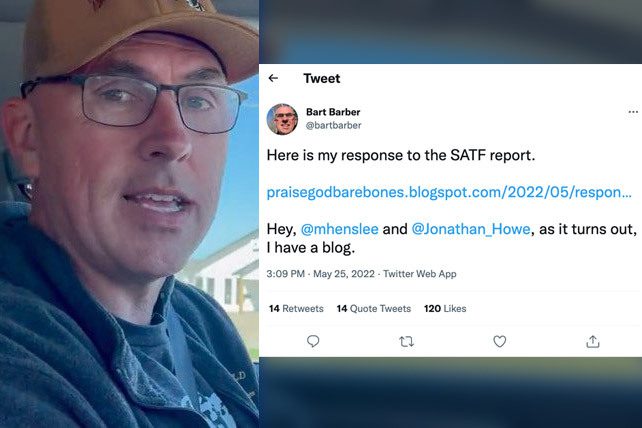Another prominent candidate for the Southern Baptist Convention presidency is weighing in on the explosive report about sexual abuse and how denominational leaders handled it. Earlier this week, candidate Tom Ascol shared his reactions to the 288 pages of findings from Guidepost Solutions. Now candidate Bart Barber, an SBC pastor in Texas, has posted his thoughts about the independent report.
Released to the public May 22, the report states that during the past two decades, the SBC systematically and consistently ignored, silenced, and even ostracized sexual abuse survivors. According to investigators, legal risk management often took precedence over preventing sexual misconduct and supporting victims.
Bart Barber: EC Chose ‘Blackstone’ Over the Bible
On Wednesday, Barber posted a blog titled “Response to the Sexual Abuse Task Force Report.” In it, the 52-year-old pastor says it’s “clear” that abuse occurred within the SBC and that “every time abuse happens in a church, the abuser has committed a mutiny against Christ’s lordship over the church and has scandalized His little ones.”
Barber apologizes for not listening “more quickly and more carefully,” acknowledging that “guilt for that failure reaches far beyond the C-suite at the Baptist Building. It reaches to me.”
Then he calls out SBC leadership, saying some members of the Executive Committee “deliberately helped as little as possible—deliberately refusing to return phone calls and messages, deliberately withholding information that they were collecting about abusers, and deliberately minimizing the amount of helpful advice that they would disclose.”
It’s clear from the report, says Barber, that “a fundamental misunderstanding of the distinctive Baptist belief in the autonomy of the local church” led to “bad decisions.” That cherished doctrine, he notes, “can have legal implications” but is “a theological concept, not a legal device.”
Barber says, “The Executive Committee seems to have been operating under a different notion of local church autonomy—one arising less out of the Bible and more out of Blackstone” (a legal reference work). The EC conflated congregational autonomy with issues of legal liability, he adds, and waiving attorney-client privilege played an “indispensable” role in exposing “this doctrinal failure.”
Local Church Autonomy Must Be Biblical, Says Bart Barber
In his post, Barber writes: “The same Bible that teaches us about local church autonomy teaches us more clearly and forcefully about loving one another. The words and actions described in this report are in many cases far removed from love for survivors and for their advocates.”
Reasserting “a proper biblical understanding of local church autonomy” requires incorporating love and justice, Barber says. Though “not a lawyer,” he believes it’s possible to do that without nullifying “all the legal protections that arise out of our sincerely held beliefs about local church autonomy.”

